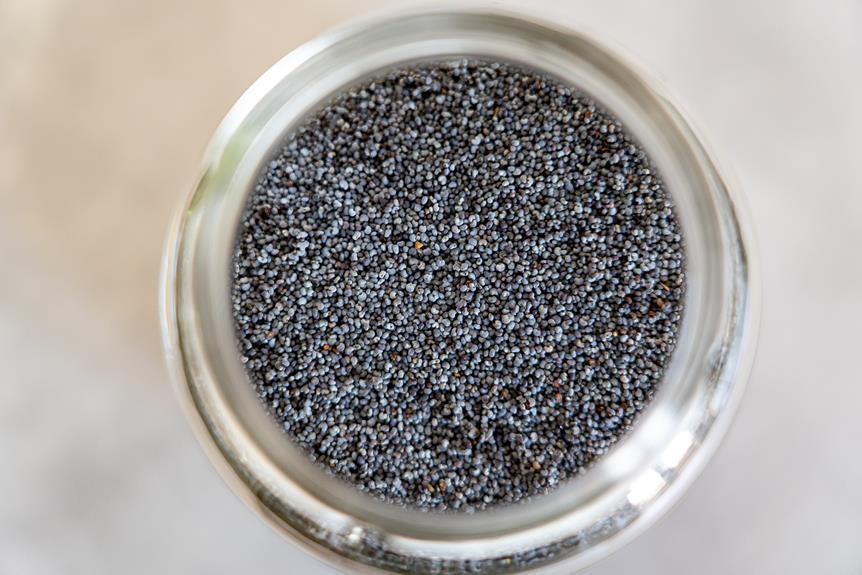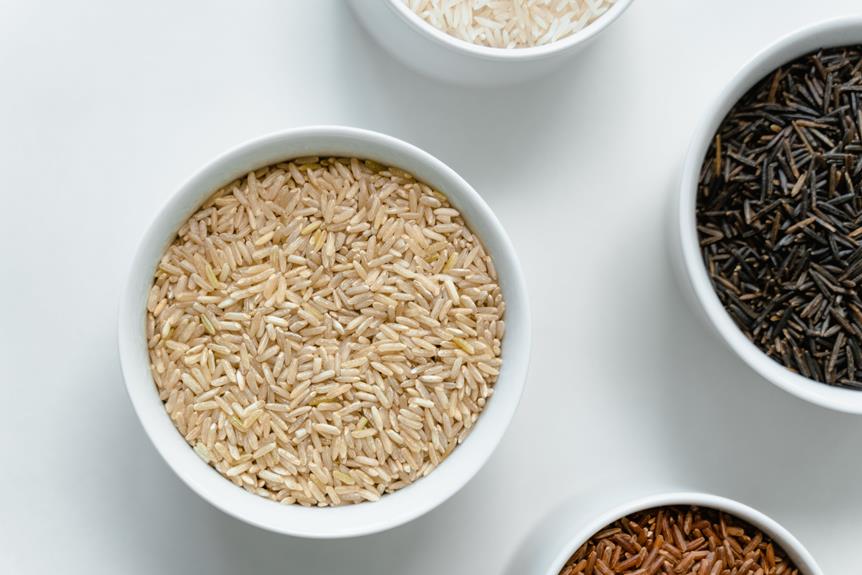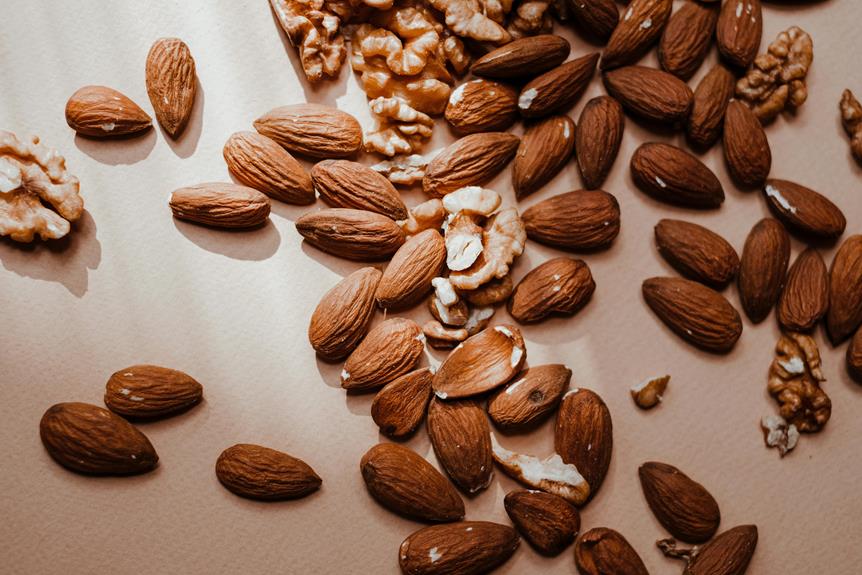Are you tired of feeling backed up and uncomfortable? Look no further than the power of dietary fiber to provide relief. But what exactly is the impact of dietary fiber on constipation? How does it work its magic within your digestive system? In this discussion, we will uncover the secrets behind the role of fiber in digestion, explore different types of fiber and their benefits, and reveal the recommended daily intake for constipation relief. Get ready to discover how simple dietary changes can have a profound impact on your gut health.
Key Takeaways
- Dietary fiber promotes regular bowel movements and adds bulk to stool, making it easier to pass.
- Soluble fiber softens stool and regulates blood sugar, while insoluble fiber speeds up stool passage through the intestines.
- Both types of fiber work together to prevent constipation and support a healthy gut microbiome.
- Foods high in fiber, such as fruits, vegetables, legumes, whole grains, nuts, and seeds, are beneficial for gut health.
The Role of Dietary Fiber in Digestion
Dietary fiber plays a crucial role in your digestion by promoting regular bowel movements and preventing constipation. When you consume foods that are high in fiber, such as fruits, vegetables, and whole grains, it adds bulk to your stool, making it easier to pass through your digestive system. This helps to prevent constipation, which is characterized by infrequent bowel movements and difficulty in passing stool.
One of the main ways in which dietary fiber promotes regular bowel movements is by increasing the water content in your stool. Fiber has the ability to absorb water, which softens the stool and makes it easier to pass. Additionally, fiber acts as a natural laxative by stimulating the muscles in your intestines, helping to move waste through your digestive system more efficiently.
Another important role of dietary fiber is in maintaining a healthy gut microbiome. Fiber acts as a prebiotic, providing nourishment for the beneficial bacteria in your gut. These bacteria play a key role in digestion and nutrient absorption. By promoting the growth of these beneficial bacteria, fiber helps to maintain a healthy balance in your gut, which is essential for optimal digestion.
In addition to preventing constipation, dietary fiber has many other benefits for your overall health. It can help to lower cholesterol levels, control blood sugar levels, and promote a healthy weight. By including a variety of high-fiber foods in your diet, such as fruits, vegetables, whole grains, and legumes, you can ensure that you are getting enough fiber to support your digestion and overall well-being.
Types of Dietary Fiber and Their Benefits
There are various types of dietary fiber that offer different benefits for your digestive health and overall well-being. Understanding these different types can help you make informed choices about the foods you consume.
Soluble fiber is one type of dietary fiber that dissolves in water and forms a gel-like substance in the digestive tract. This type of fiber can help soften stool and prevent constipation. It is found in foods such as oats, barley, legumes, and fruits like apples and oranges. Soluble fiber also helps regulate blood sugar levels and lower cholesterol levels, making it beneficial for individuals with diabetes or heart disease.
Insoluble fiber, on the other hand, does not dissolve in water. Instead, it adds bulk to the stool, promoting regular bowel movements and preventing constipation. Whole grains, vegetables, and nuts are excellent sources of insoluble fiber. This type of fiber also helps maintain a healthy weight by providing a feeling of fullness and reducing overeating.
Resistant starch is another type of dietary fiber that resists digestion in the small intestine. It acts as food for the beneficial bacteria in the colon, promoting a healthy gut microbiome. Resistant starch can be found in foods like green bananas, cooked and cooled potatoes, and legumes. It helps improve bowel regularity and may also have potential benefits for weight management and blood sugar control.
How Fiber Prevents Constipation
Including fiber in your diet can help prevent constipation and promote regular bowel movements. Fiber plays a crucial role in maintaining a healthy digestive system by adding bulk to the stool, softening it, and making it easier to pass through the digestive tract. There are two main types of fiber: soluble fiber and insoluble fiber. Soluble fiber dissolves in water and forms a gel-like substance in the intestines, while insoluble fiber does not dissolve and adds bulk to the stool. Both types of fiber work together to prevent constipation.
Soluble fiber absorbs water in the intestines, increasing the bulk and softness of the stool. This makes it easier for the stool to move through the digestive system and prevents it from becoming hard and dry, which can lead to constipation. Foods rich in soluble fiber include oats, barley, fruits, and vegetables.
Insoluble fiber, on the other hand, adds bulk to the stool and speeds up its passage through the intestines. It helps to prevent constipation by promoting regular bowel movements. Insoluble fiber can be found in whole grains, bran, nuts, and seeds.
Recommended Daily Fiber Intake for Constipation Relief
To relieve constipation, it is important to consume an adequate daily intake of fiber. Fiber plays a crucial role in promoting regular bowel movements and preventing constipation. The recommended daily fiber intake for constipation relief varies depending on age, sex, and overall health. Here are five key points to consider when determining your recommended daily fiber intake:
- Age: The recommended daily fiber intake for adults varies between 25-38 grams for women and 38-50 grams for men. As you age, your fiber requirements may decrease slightly, but it is still essential to consume an adequate amount.
- Gender: Men generally require more fiber than women due to differences in body composition and metabolism. It is important for men to aim for the higher end of the recommended range to ensure optimal constipation relief.
- Health Conditions: Individuals with certain health conditions, such as diabetes or irritable bowel syndrome, may require specific dietary modifications. It is best to consult with a healthcare professional for personalized recommendations.
- Slowly Increase Intake: Increasing fiber intake abruptly can lead to bloating and discomfort. It is recommended to gradually increase your fiber intake over a few weeks to allow your body to adjust.
- Hydration: Consuming an adequate amount of water is crucial when increasing fiber intake. Fiber absorbs water, and without sufficient hydration, it may worsen constipation.
Foods High in Dietary Fiber for Gut Health
Now, let's talk about the foods that are high in dietary fiber and can promote gut health. Including fiber-rich food options in your diet has numerous benefits for your digestive system. So, what are some of these fiber-rich foods and how can they support your overall gut health?
Fiber-Rich Food Options
Boost your gut health and relieve constipation by incorporating fiber-rich foods into your diet. Here are five options to consider:
- Fruits: Enjoy the natural sweetness and fiber content of fruits like apples, pears, berries, and oranges.
- Vegetables: Load up on fiber by including vegetables such as broccoli, Brussels sprouts, carrots, and leafy greens in your meals.
- Legumes: Add lentils, chickpeas, black beans, and kidney beans to your dishes for a hearty dose of fiber.
- Whole grains: Opt for whole grain options like brown rice, quinoa, oats, and whole wheat bread to increase your fiber intake.
- Nuts and seeds: Snack on almonds, chia seeds, flaxseeds, and sunflower seeds to boost your fiber consumption.
Benefits of Dietary Fiber
Incorporating fiber-rich foods into your diet not only helps relieve constipation, but also provides numerous benefits for gut health. Foods high in dietary fiber are known to promote regular bowel movements and prevent constipation by adding bulk to the stools and facilitating their passage through the digestive system. Additionally, consuming a diet rich in fiber has been linked to a reduced risk of developing various digestive disorders, including hemorrhoids, diverticular disease, and colorectal cancer. Furthermore, fiber acts as a prebiotic, providing nourishment for the beneficial bacteria in your gut. This can help maintain a healthy balance of gut flora, support proper digestion and absorption of nutrients, and boost your immune system. By including fiber-rich foods in your meals, you can improve your gut health and overall well-being.
Incorporating Fiber-Rich Foods Into Your Diet
To improve your diet and relieve constipation, consider adding fiber-rich foods to your daily meals. Incorporating these foods into your diet can help increase your daily fiber intake and promote regular bowel movements. Here are five fiber-rich foods that you can easily incorporate into your meals:
- Fruits and vegetables: Include a variety of fruits and vegetables in your diet, such as apples, oranges, berries, broccoli, carrots, and spinach. These foods are not only rich in fiber but also provide essential vitamins and minerals.
- Whole grains: Opt for whole grain products like whole wheat bread, brown rice, and whole grain pasta. These foods contain more fiber compared to their refined counterparts, such as white bread and white rice.
- Legumes: Add legumes like beans, lentils, and chickpeas to your meals. They are high in fiber and can be incorporated into soups, salads, or stews.
- Nuts and seeds: Snack on nuts and seeds like almonds, chia seeds, and flaxseeds. These can be sprinkled on top of yogurt, oatmeal, or salads for an extra fiber boost.
- Bran cereal: Start your day with a bowl of bran cereal, which is an excellent source of dietary fiber. Look for cereals that have at least 5 grams of fiber per serving.
Remember to gradually increase your fiber intake and drink plenty of water along with your fiber-rich meals. This will help prevent any digestive discomfort and ensure the effectiveness of fiber in relieving constipation. By incorporating these fiber-rich foods into your diet, you can promote better digestive health and alleviate constipation.
The Importance of Hydration for Fiber's Effectiveness
To ensure the effectiveness of fiber in relieving constipation, it is important to prioritize hydration. Adequate hydration is crucial for the proper functioning of the digestive system and can significantly enhance the benefits of consuming fiber-rich foods. When you increase your fiber intake without consuming enough fluids, it can actually worsen constipation by causing dry, hard stools. By maintaining proper hydration, you can optimize the effects of fiber and promote regular bowel movements.
Hydration plays a vital role in softening the stool and preventing it from becoming hard and difficult to pass. Water helps fiber to absorb and expand in the digestive tract, which adds bulk to the stool and stimulates the muscles in the intestines, promoting regular bowel movements. Without sufficient hydration, fiber may not be able to perform its intended function effectively.
To illustrate the importance of hydration for fiber's effectiveness, consider the following table:
| Fiber Intake | Hydration |
|---|---|
| Low | Low |
| Low | High |
| High | Low |
| High | High |
As shown in the table, the combination of high fiber intake and high hydration levels is the most favorable scenario for relieving constipation. It ensures that the fiber is properly hydrated and able to soften the stool, leading to easier passage through the intestines.
Fiber Supplements for Constipation Relief
Fiber supplements can be an effective solution for relieving constipation. When you're struggling with constipation, adding fiber supplements to your diet can help promote regular bowel movements and alleviate discomfort. Here are a few reasons why fiber supplements are beneficial:
- Easy to consume: Fiber supplements come in various forms such as powders, capsules, or chewable tablets, making them convenient to take.
- Quick relief: Fiber supplements can provide fast relief by adding bulk to your stool, making it easier to pass.
- Increased fiber intake: If you struggle to consume enough fiber through your diet alone, supplements can help you meet your daily fiber requirements.
- Different types of fiber: There are different types of fiber supplements available, such as psyllium husk or methylcellulose, each with its own unique properties and benefits.
- Customizable dosage: Fiber supplements allow you to adjust the dosage based on your needs, ensuring you find the right amount that works for you.
It's important to note that while fiber supplements can be effective, it's always recommended to consult with your healthcare provider before starting any new supplement. They can provide guidance on the appropriate dosage and help determine if fiber supplements are suitable for your specific situation.
Lifestyle Changes to Support Regular Bowel Movements
Incorporating healthy habits into your daily routine can support regular bowel movements. Making certain lifestyle changes can help alleviate constipation and promote a healthier digestive system. Here are some simple yet effective changes you can make:
| Lifestyle Change | Benefits |
|---|---|
| Increase water intake | Staying hydrated helps soften stools and prevents them from becoming dry and difficult to pass. Aim for at least 8 glasses of water per day. |
| Engage in regular physical activity | Exercise stimulates the muscles in your digestive tract, promoting regular bowel movements. Aim for 30 minutes of moderate activity, such as walking or cycling, most days of the week. |
| Eat a balanced diet | Ensure your meals include a variety of fruits, vegetables, whole grains, and lean proteins. These foods provide essential nutrients and fiber, which helps move waste through your digestive system. |
| Establish a consistent bathroom routine | Train your body to expect a regular time for bowel movements by setting aside a specific time each day to visit the bathroom. This helps regulate your bowel movements and reduces the likelihood of constipation. |
Frequently Asked Questions
Are There Any Side Effects of Consuming Too Much Dietary Fiber for Constipation Relief?
Consuming too much dietary fiber for constipation relief can have some side effects. These can include bloating, gas, and stomach cramps. It is important to gradually increase your fiber intake and drink plenty of water to help prevent these side effects. Additionally, if you have any underlying digestive conditions, such as irritable bowel syndrome, consuming excessive amounts of fiber may exacerbate symptoms. It is always best to consult with a healthcare professional before making significant changes to your diet.
Can Dietary Fiber Help With Other Digestive Issues Besides Constipation?
Dietary fiber can indeed help with other digestive issues besides constipation. It plays a crucial role in maintaining a healthy digestive system. Fiber can help regulate bowel movements, prevent diarrhea, and reduce the risk of developing certain gastrointestinal disorders. Additionally, it aids in weight management and helps control blood sugar levels. Including fiber-rich foods like fruits, vegetables, whole grains, and legumes in your diet can provide numerous benefits for your overall digestive health.
Is There a Specific Time of Day That Is Best for Consuming Fiber to Relieve Constipation?
To relieve constipation, you may wonder if there's a particular time of day that's best for consuming fiber. While the impact of dietary fiber on constipation relief is well-documented, there is no specific time recommended for consuming fiber to alleviate constipation. It's generally advised to spread your fiber intake throughout the day by including high-fiber foods in your meals and snacks. This consistent intake can help promote regular bowel movements and provide relief from constipation.
Can Children and Elderly Individuals Benefit From Increasing Their Dietary Fiber Intake for Constipation Relief?
Increasing your dietary fiber intake can benefit both children and elderly individuals for constipation relief. Fiber adds bulk to the stool, making it easier to pass through the digestive system. This can help alleviate constipation and promote regular bowel movements. It is important to gradually increase fiber intake and drink plenty of water to avoid any discomfort. Consult with a healthcare professional to determine the appropriate amount of fiber and discuss any potential dietary restrictions.
How Long Does It Take for Dietary Fiber to Start Relieving Constipation Symptoms?
When you're wondering how long it takes for dietary fiber to start relieving constipation symptoms, it's important to consider its impact on your digestive system. Increasing your fiber intake can help promote regular bowel movements and soften your stool, making it easier to pass. However, the time it takes for fiber to have an effect can vary from person to person. Some individuals may experience relief within a few days, while others may take longer. It's best to consult with your healthcare provider for personalized advice.




